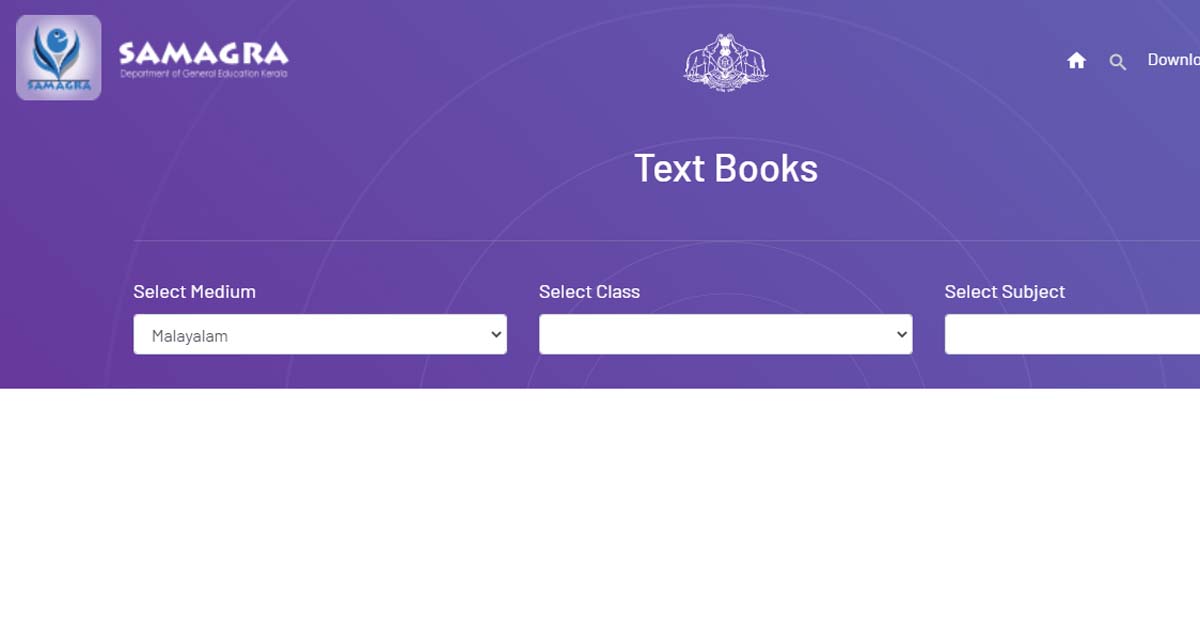Samagra Shiksha Kerala
The Union Budget 2018-19 has proposed to treat school education holistically without segmentation from pre-nursery to Class 12. Samagra Shiksha – an overarching program for the school education sector extending from pre-school to class 12 has been therefore prepared with the broader goal of improving school effectiveness measured in terms of equal opportunities for schooling and equitable learning outcomes. It subsumes the three Schemes of Sarva Shiksha Abhiyan(SSA), Rashtriya Madhyamik Shiksha Abhiyan (RMSA) and Teacher Education(TE).
This sector-wide development program /scheme would also help harmonise the implementation mechanisms and transaction costs at all levels, particularly in using state, district and sub-district level systems and resources, besides envisaging one comprehensive strategic plan for development of school education at the district level.
The shift in the focus is from project objectives to improving systems level performance and schooling outcomes which will be the emphasis of the combined Scheme along-with incentivizing States towards improving quality of education.
The major objectives of the Scheme are provision of quality education and enhancing learning outcomes of students, Bridging Social and Gender Gaps in School Education, Ensuring equity and inclusion at all levels of school education, Ensuring minimum standards in schooling provisions, Promoting Vocationalisation of education, Support States in implementation of Right of Children to Free and Compulsory Education, (RTE) Act 2009 and Strengthening and up-gradation of SCERTs/State Institutes of Education and DIET as a nodal agencies for teacher training.
The major interventions across all levels of school education, proposed under the scheme are: (i) Universal Access including Infrastructure Development and Retention;
(ii) Gender and Equity
(iii) Inclusive Education
(iv) Quality
(v) Financial support for Teacher Salary
(vi) Digital initiatives
(vii) RTE Entitlements including uniforms, textbooks etc
(viii) Pre-school Education
(ix) Vocational Education
(x) Sports and Physical Education
(xi) Strengthening of Teacher Education and Training
(xii) Monitoring
(xiii) Programme Management
Quality Education
Quality education means the process by which the school becomes a place which endures all educational needs, opportunities and learning outcomes the students are expected to accomplish. The atmosphere, the methodology, the teaching and learning apparatus, the activities and approach should be child friendly, ensuring the total involvement of the students in the process of education. In addition, the personal aptitudes and capabilities of the students need to be nourished respecting individual differences. Education invariably aims at the development of all faculties of human potentials. The curriculum envisages the all-round development of the individual. Quality education has a broader sense than getting through some school examination and tests.
Gender Equality
Strategies to ensure equitable access Including all learners and ensuring that each individual has an equal and personalized opportunity for educational progress is still a challenge in School education in Kerala. Despite commendable progress made over the past two decades to expand access to basic education, further efforts are needed to minimize barriers to learning and to ensure that all learners in schools experience a genuine inclusive environment. Inclusion and equity are overarching principles that should guide all educational policies, plans and practices, rather than being the focus of a separate policy. These principles recognize that education is a human right and is the foundation for more equitable, inclusive and cohesive communities. Ensuring that all learners have access to quality education also acknowledges the intrinsic value of diversity and respect for human dignity.
In this way, differences come to be seen in a positive light as the stimulus for fostering learning among children, young people and adults, and for promoting gender equality. The principles of inclusion and equity are, then, not only about ensuring access to education, but also about having quality learning spaces and pedagogues that enable students to thrive, to understand their realities, and to work for a more just society. Equity in education has two dimensions. The first is fairness, which basically means making sure that personal and social circumstances for example gender, soci
oeconomic status or ethnic origin should not be an obstacle to achieving educational potential. The second is inclusion, in other words ensuring a basic minimum standard of education for all for example that everyone should be able to read, write and do simple arithmetic. The two dimensions are closely intertwined: tackling school failure helps to overcome the effects of social deprivation which often causes school failure.















